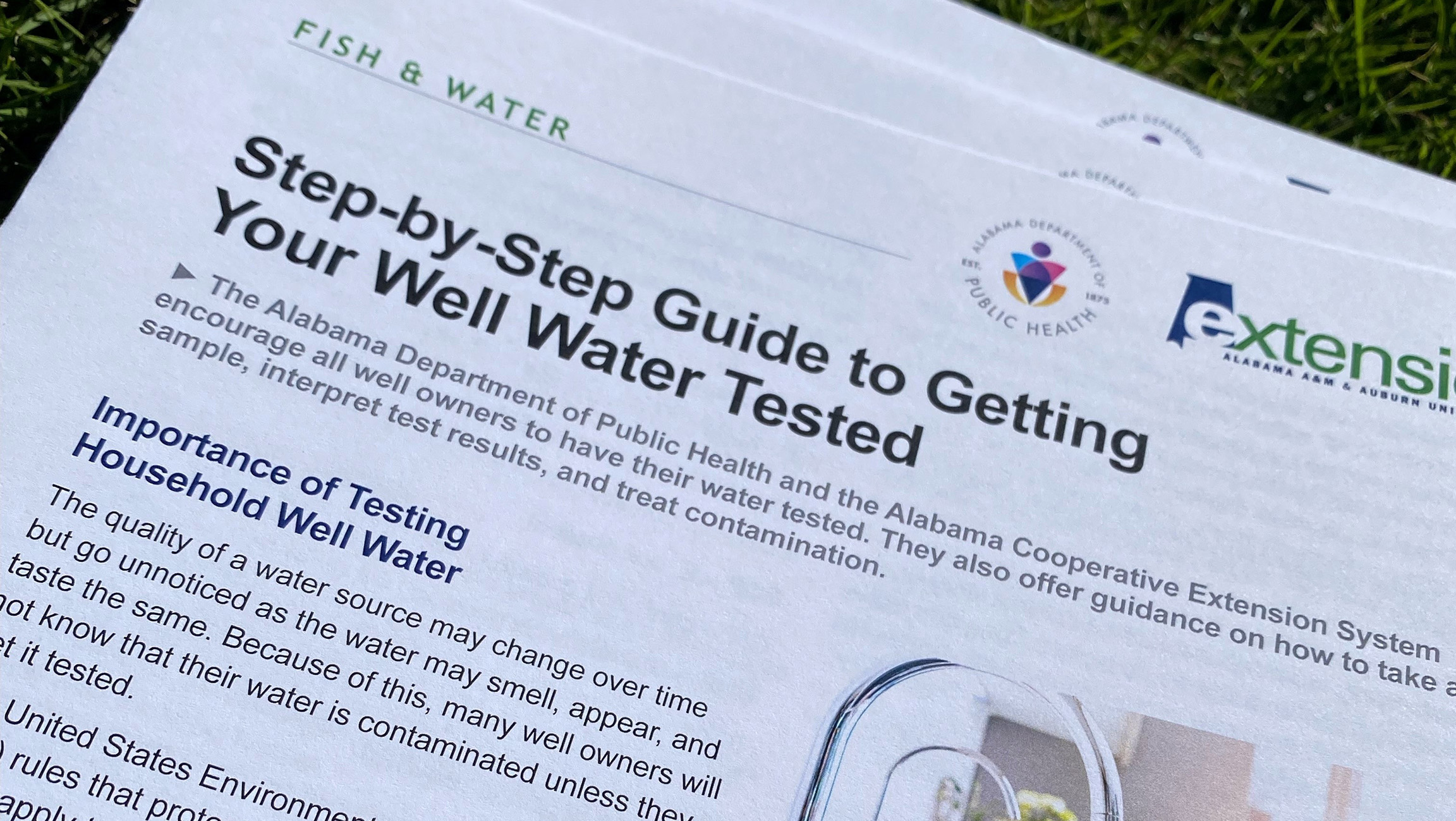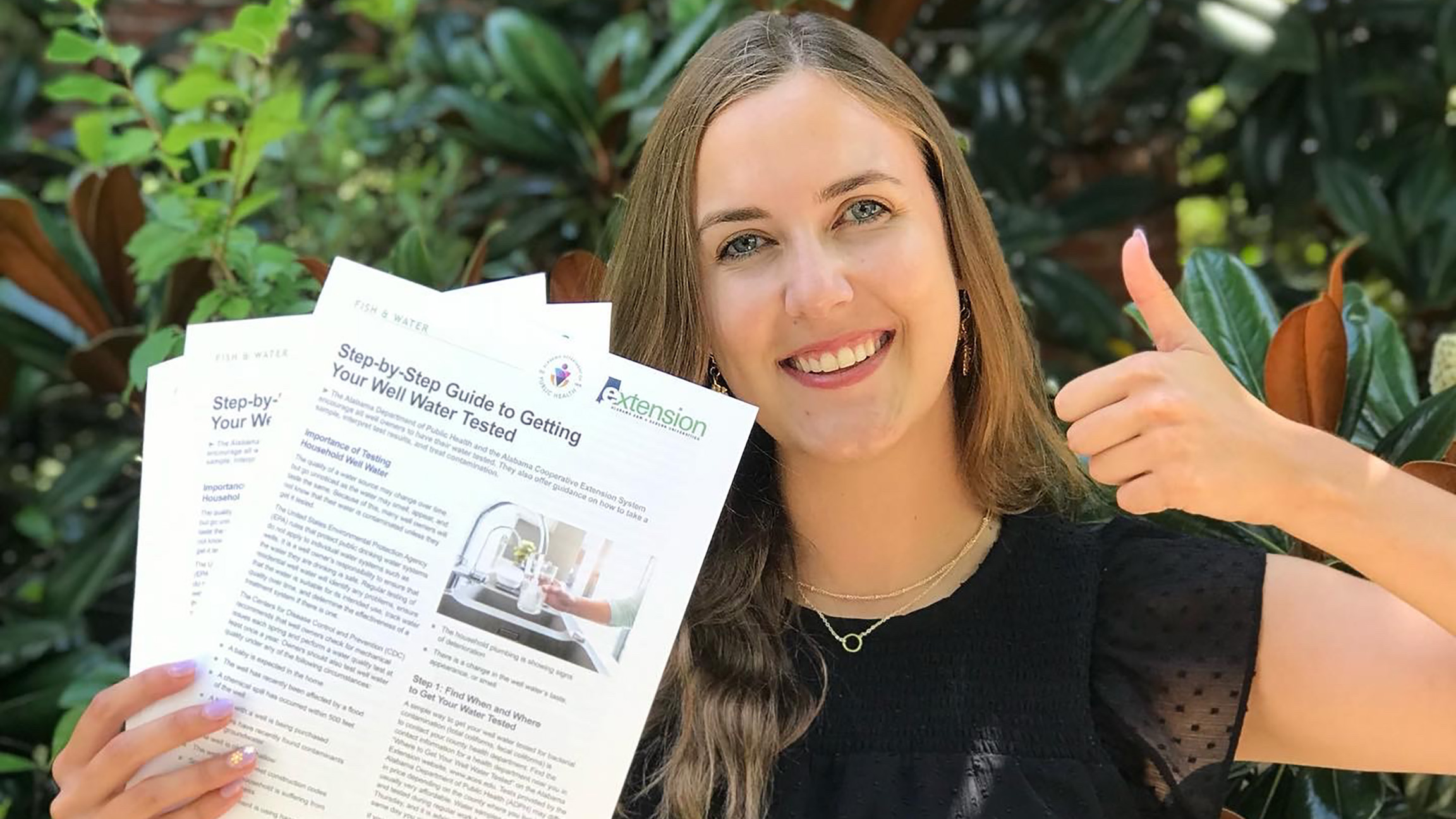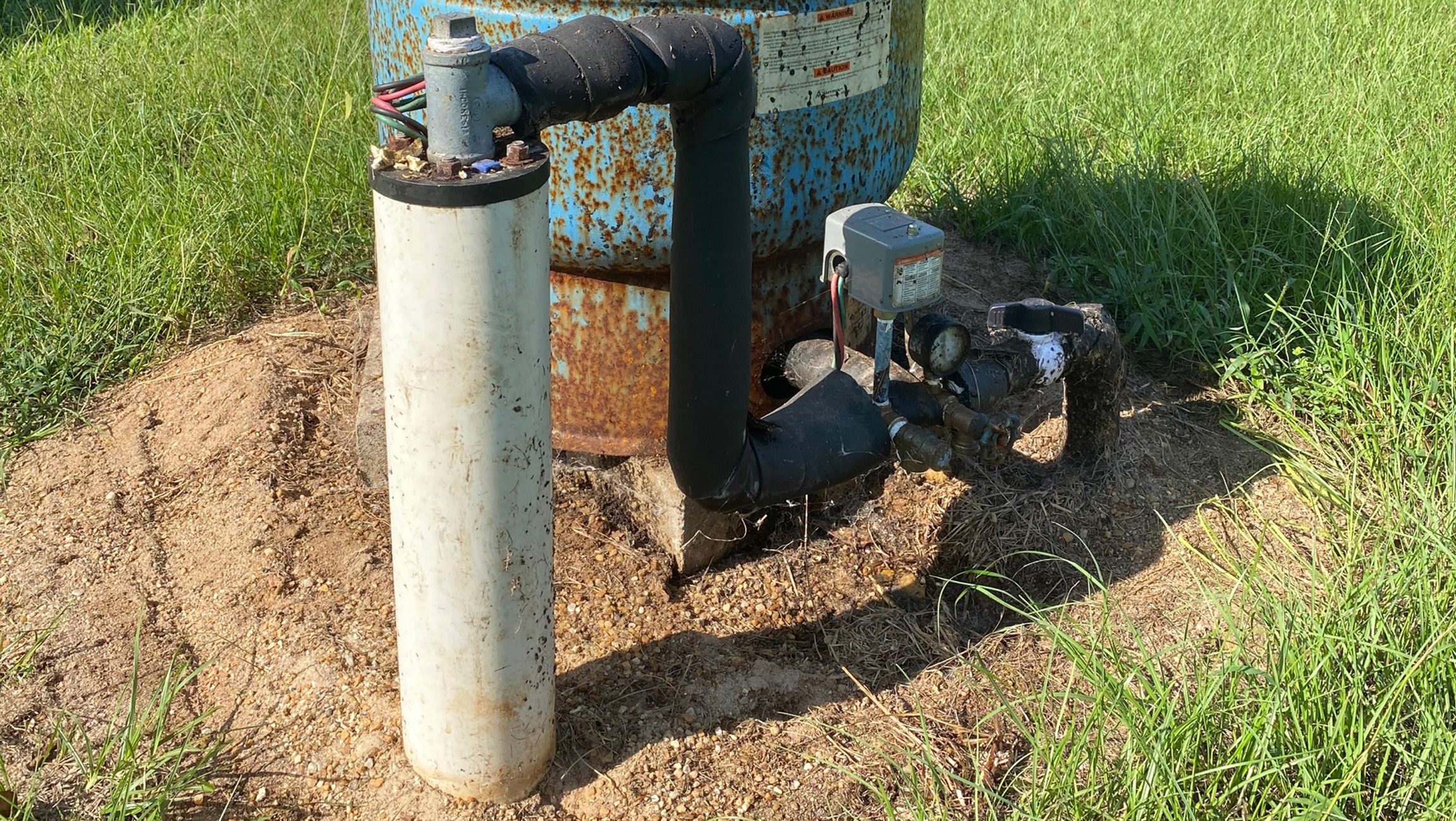by Jessie Curl

“I need to get my water tested”.
If you are a property owner with a well in Alabama, it’s likely that you have had this very thought.
With over 500,000 well owners, it’s important to be aware of the resources available for testing well water in our State.
The Alabama Private Well Program (APWP) was established in 2020 with the goal of answering some of these questions from well owners living in Alabama. Recently, the APWP has partnered with the Alabama Department of Public Health (ADPH) to get a Step-by-Step Guide to Getting Your Well Water Tested publication into County Health Department and Alabama Extension offices in all 67 counties.

AUWRC’s Alabama Private Well Program Coordinator, Jessie Curl, showcases the Step-by-Step Guide to Getting Your Well Water Tested. Photo Credit: AUWRC Staff
Why Test My Water?
The quality of a water source may change over time but go unnoticed as the water may smell, appear, and taste the same. Because of this, many well owners will not know that their water is contaminated unless they get it tested.
The United States Environmental Protection Agency (EPA) rules that protect public drinking water systems do not apply to individual water systems such as wells. It is a well owner’s responsibility to ensure that the water they are drinking is safe. Regular testing of residential well water will identify any problems, ensure that the water is suitable for its intended use, track water quality over time, and determine the effectiveness of a treatment system if there is one.

A private well on a home site. Photo Credit: Jessie Curl
The Centers for Disease Control and Prevention (CDC) recommends that well owners check for mechanical issues each spring and perform a water quality test at least once a year. Owners should also test well water quality under any of the following circumstances:
- A baby is expected in the home
- The well has recently been affected by a flood
- A chemical spill has occurred within 500 feet of the well
- A home with a well is being purchased
- Neighbors have recently found contaminants in their groundwater
- The well is old or shallow
- The well does not meet construction codes
- Someone in the household is suffering from gastrointestinal illness
- A nearby development is using hazardous materials
- The household plumbing is showing signs of deterioration
- There is a change in the well water’s taste, appearance, or smell
About the Guide
In this guide, readers will learn about the steps required for testing well water with the Alabama Department of Public Health. The guide covers topics such as:
- The importance of testing well water
- When and where to get your water tested
- Collecting a sample for the ADPH
- Interpreting test results
- Treating contamination
Interested in picking up a copy? Visit aub.ie/stepbystep to access your own copy of a Step-by-Step Guide to Getting Your Well Water Tested.
For resources and upcoming events visit the AUWRC Events Calendar or www.aub.ie/wellwater
Interested in additional blog posts? See below!
